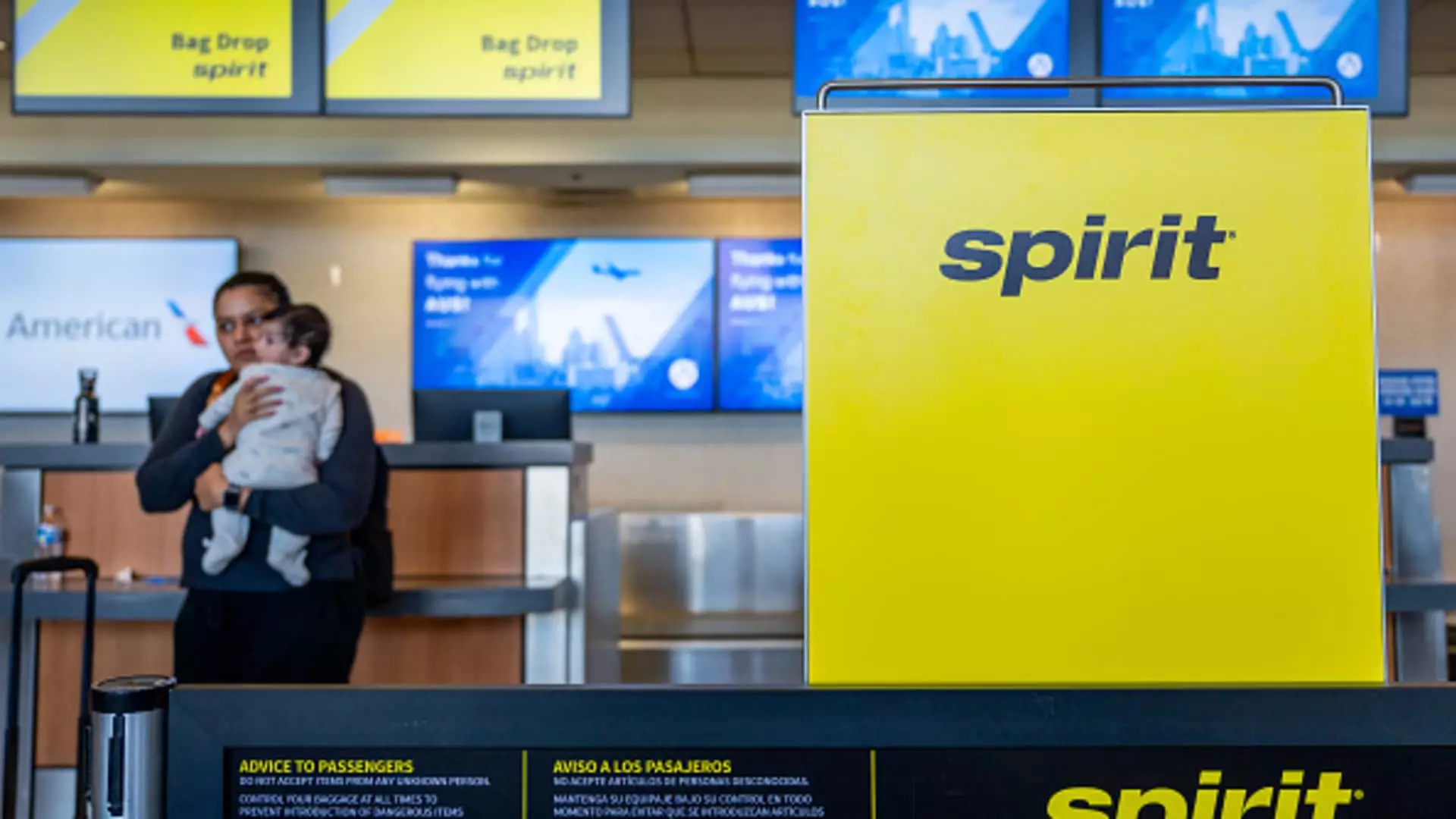In a significant development within the airline industry, Spirit Airlines has made headlines by filing for Chapter 11 bankruptcy protection. This is a pivotal moment as it marks the first instance of a major U.S. passenger carrier seeking bankruptcy protection since American Airlines did so thirteen years prior. However, it is crucial to note that this move does not equate to a complete shutdown. Instead, it represents a strategic decision aimed at providing the airline with a structured environment to reconfigure its operations while remaining functional and service-oriented.
CEO Ted Christie has reached out to customers to assuage any fears, emphasizing that passengers can continue booking flights, using loyalty points, and redeeming credits as usual. This reassurance showcases a firm commitment to maintaining customer relations, which is essential for recovering any lost trust during such tumultuous times.
Spirit Airlines has been facing financial difficulties that have extended back to 2019. These challenges were exacerbated by the COVID-19 pandemic, which significantly increased costs across the industry. To add to the pressure, the airline experienced operational setbacks, including the grounding of many Airbus jets due to engine recall issues. This operational turbulence was further compounded by a federal court’s decision to block Spirit’s proposed acquisition by JetBlue Airways, which was intended to bolster its market position.
As of late, Spirit has been grappling with a $1.1 billion debt obligation due next year. The impending deadline connected to its credit card processing agreement was drawing near, inflating the urgency of the situation. To address this, Spirit has reportedly reached a prearranged deal with the majority of its bondholders, intent on a streamlined approach to navigating the Chapter 11 process. This restructuring aims for a fresh start by the beginning of 2025, signifying hope for a path toward sustainability.
The concept of bankruptcy can evoke anxiety among consumers, especially travelers who may fear disruption to their plans. However, it’s imperative to understand that Spirit Airlines is not ceasing operations. Instead, it gains a protective shield that allows reassessment and reorganization of its business practices—commonly inclusive of potential asset sales or operational overhauls.
According to travel consultant Henry Harteveldt, consumers should stay vigilant regarding any alterations to Spirit’s flight schedules or service levels. The holiday season, a peak travel period, is particularly crucial for revenue generation, and the airline is likely to strive for schedule stability during this time. However, cuts may be unavoidable as the company adjusts to its new reality post-bankruptcy.
Airline customers are protected under U.S. law and can claim a cash refund if flights are canceled and not rebooked. However, complications often arise during bankruptcy proceedings. Acknowledging this, the Department of Transportation (DOT) warns that obtaining refunds could become a challenging endeavor as the airline conserves its assets. Travelers should remain aware that if Spirit rejects refund requests, they may invoke protections provided by credit card companies.
As uncertainty clouds the aviation landscape, consumers need to adopt protective measures when purchasing airline tickets. Harteveldt emphasizes the importance of using credit cards for such transactions; they often provide greater cancellation protections compared to debit cards or cash. Additionally, those particularly concerned about potential disruptions can consider booking refundable tickets with alternative airlines, albeit at a potentially higher cost.
Travel insurance could provide peace of mind by covering pre-paid expenses should travel plans become disrupted due to Spirit’s restructuring. While these options may incur extra costs, they serve as a safety net for travelers navigating the precarious climate of air travel during Spirit’s Chapter 11 process.
Despite the hurdles it faces, Spirit Airlines aims to emerge from Chapter 11 bankruptcy as a leaner, more efficient airline, positioning itself to regain a competitive edge in an industry still reeling from pandemic repercussions. There’s speculation that other airlines, particularly those looking to expand their fleets, may acquire some of Spirit’s assets during this period.
While mergers and acquisitions can reshape the industry, some experts believe that a renewed attempt to merge Spirit with Frontier Airlines could be on the horizon, especially given the political climate’s potential openness to airline consolidations.
While Spirit Airlines grapples with substantial challenges in the wake of its Chapter 11 filing, the response from its management and the protective mechanisms for consumers offer a glimpse of resilience. By remaining customer-focused and strategizing for recovery, Spirit Airlines may well navigate these turbulent skies back to profitability.


Leave a Reply